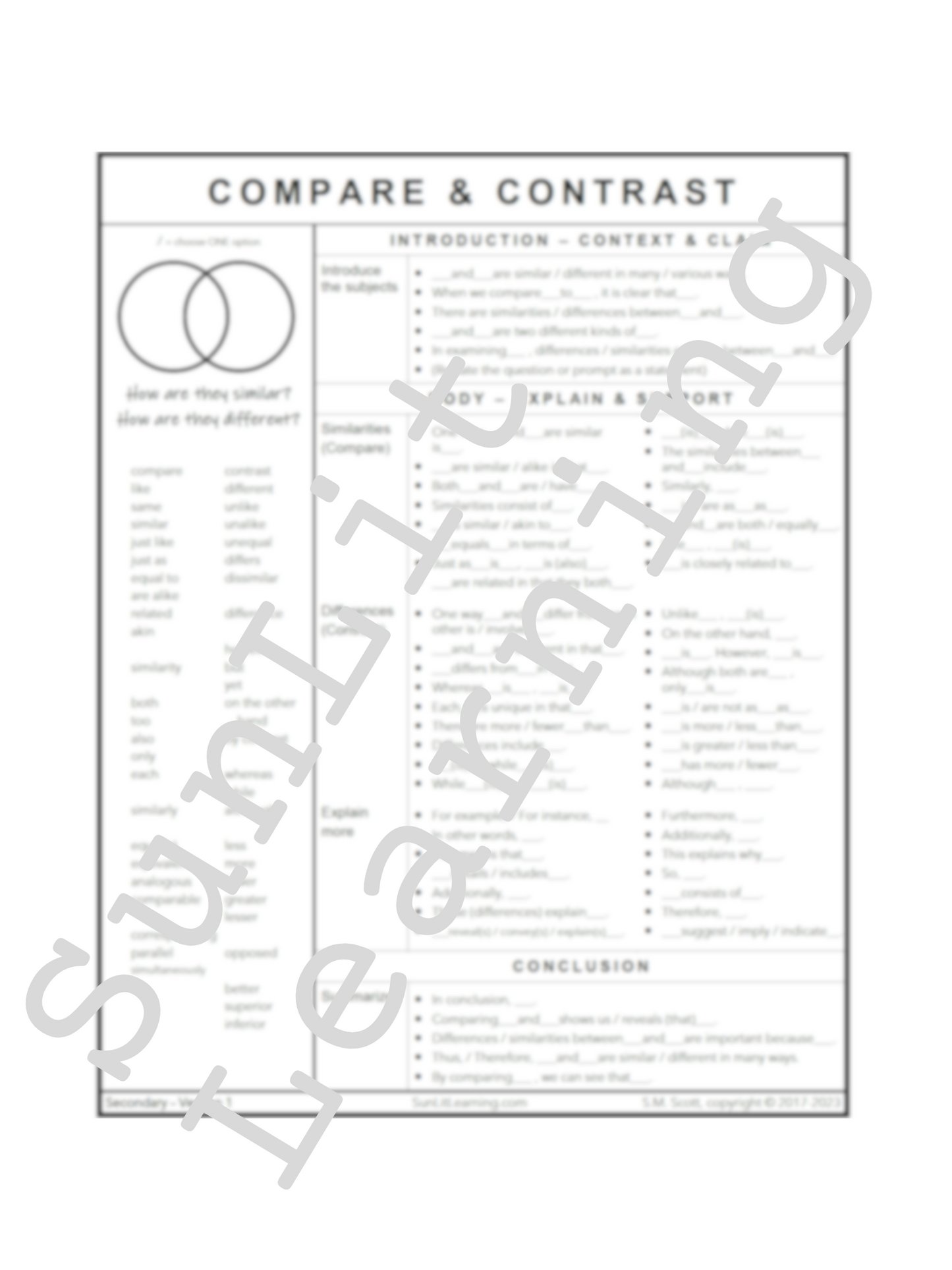SunLit Learning
Compare & Contrast - Secondary V.1
Compare & Contrast - Secondary V.1
Couldn't load pickup availability
Product:
Writing reference tool designed to support writers when comparing and contrasting two or more subjects.
- Secondary - Ideal for writers in grades 6 and above.
- Includes sentence frames for: Introduction, Body, and Conclusion
Compare and Contrast
Being able to compare and contrast two or more subjects in writing is important for several reasons:
-
Clarity and understanding: Comparing and contrasting subjects helps to clarify similarities and differences between them. By highlighting these distinctions, readers gain a clearer understanding of the characteristics, features, or qualities of each subject. It enhances comprehension and allows readers to grasp the nuances and relationships between the subjects being discussed.
-
Critical thinking and analysis: Comparing and contrasting subjects requires critical thinking and analytical skills. It involves examining the similarities and differences, evaluating their significance, and drawing meaningful conclusions. This process enhances your ability to analyze information, identify patterns, and make informed judgments.
-
Effective communication: When writing about multiple subjects, comparing and contrasting enables you to communicate complex ideas more effectively. It allows you to organize your thoughts and present information in a logical and coherent manner. By using comparison and contrast, you can structure your writing to highlight key points, emphasize important aspects, and guide the reader through your analysis.
-
Decision-making and problem-solving: Comparing and contrasting subjects can aid in decision-making and problem-solving. By evaluating different options or approaches, you can weigh their pros and cons, advantages, and disadvantages. This comparative analysis helps in making informed choices or finding solutions to complex problems.
-
Building arguments and supporting claims: Comparing and contrasting is an effective technique for building arguments and supporting claims. By juxtaposing different subjects, you can demonstrate their strengths, weaknesses, or unique characteristics. This comparative approach lends credibility and persuasiveness to your writing, as it provides evidence and reasoning to support your assertions.
-
Academic and research writing: Comparing and contrasting is widely employed in academic and research writing. It allows scholars to explore different theories, methodologies, or perspectives within a specific field. By comparing and contrasting existing studies or works, researchers can identify gaps, establish connections, and contribute to the knowledge base of their discipline.
-
Enhanced creativity and insight: Engaging in comparison and contrast exercises can foster creativity and generate new insights. By juxtaposing unrelated subjects, you may uncover unexpected connections or draw analogies that lead to fresh perspectives and innovative ideas. This process encourages creative thinking and expands your intellectual horizons.
In summary, being able to compare and contrast two or more subjects in writing is important for clarity, critical thinking, effective communication, decision-making, and problem-solving. It supports your arguments, enhances comprehension, and facilitates the exploration of complex ideas. Mastering this skill enables you to analyze information, make informed judgments, and communicate your ideas more effectively.

Introduce your content
Answer your customers' common questions
List a frequently asked question
Then provide an answer that will help your customer make an informed purchase.

